Introduction to Fisheries Ecology
Agric4profits
JULY 16, 2024
Ecology is often referred to as the study of distribution and abundance. One of the first things a field ecologist will want to know about an animal or plant sp
This site uses cookies to improve your experience. To help us insure we adhere to various privacy regulations, please select your country/region of residence. If you do not select a country, we will assume you are from the United States. Select your Cookie Settings or view our Privacy Policy and Terms of Use.
Cookies and similar technologies are used on this website for proper function of the website, for tracking performance analytics and for marketing purposes. We and some of our third-party providers may use cookie data for various purposes. Please review the cookie settings below and choose your preference.
Used for the proper function of the website
Used for monitoring website traffic and interactions
Cookies and similar technologies are used on this website for proper function of the website, for tracking performance analytics and for marketing purposes. We and some of our third-party providers may use cookie data for various purposes. Please review the cookie settings below and choose your preference.
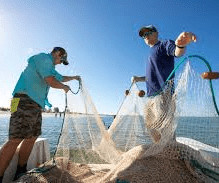
Agric4profits
JULY 16, 2024
Ecology is often referred to as the study of distribution and abundance. One of the first things a field ecologist will want to know about an animal or plant sp

Agricultural Biodiversity
JUNE 2, 2024
Beyond yield and toward sustainability: Using applied ecology to support biodiversity conservation and food production. Way beyond yield… Global potential distributions and conservation status of rice wild relatives. Europe has run out of land usable for crops, but some currently used land is being used for the wrong crops.
This site is protected by reCAPTCHA and the Google Privacy Policy and Terms of Service apply.

Caff
APRIL 5, 2024
Currently our programming is focused in four areas: Farm to Market, Policy & Advocacy, Farmer Services, and Ecological Farming. To learn more about CAFF, our history, and our core values, visit [link]. Position will involve frequent trips to the Sacramento and Northern San Joaquin Valleys and the Central Coast.
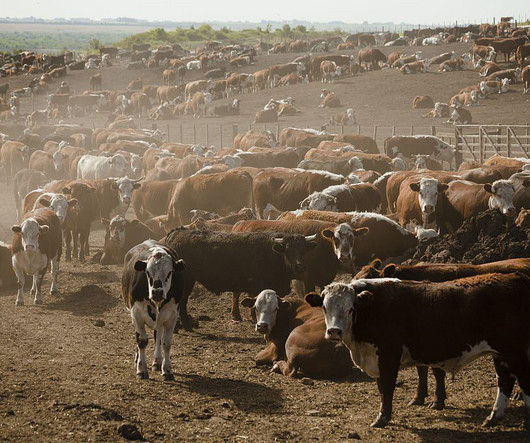
Agric4profits
JULY 20, 2023
Cattle resources are mainly concentrated in the Sudan, Southern Guinea, Northern Guinea and the Sahel ecological zones in a descending order of distribution.
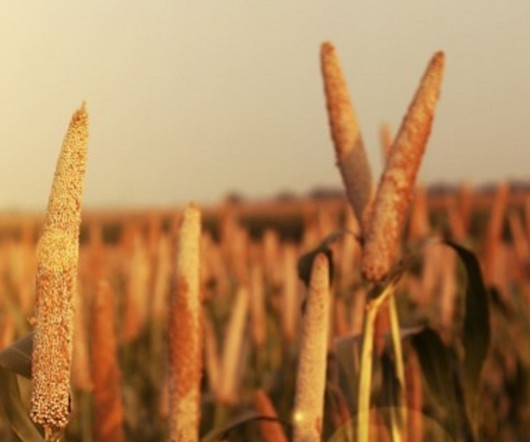
Food Tank
NOVEMBER 23, 2024
The way we produce, distribute, consume and dispose of food represents the “number one threat to people and to nature,” argued Joao Campari, Global Lead of WWF’s International, Food Practice. Food systems generate US$20 trillion of social, human and environmental costs per year , dwarfing their US$9 trillion market value.

Caff
JULY 19, 2021
Currently our programming is focused in 4 areas: Farm to Market, Policy & Advocacy, Farmer Services, and Ecological Farming. We are working to build farmer-to-farmer networks in California to provide farmers and ranchers with the resources to successfully implement ecological farming. See [link] for more information.

Civil Eats
MARCH 11, 2025
Fossil fuels provide the raw materials for the plastics in packaging, and, typically, the power to transport those chips to distribution centers and supermarkets, corner stores, vending machineswherever you find them. Fossil fuels have enabled us to soar past our ecological limits. And thats just potato chips.
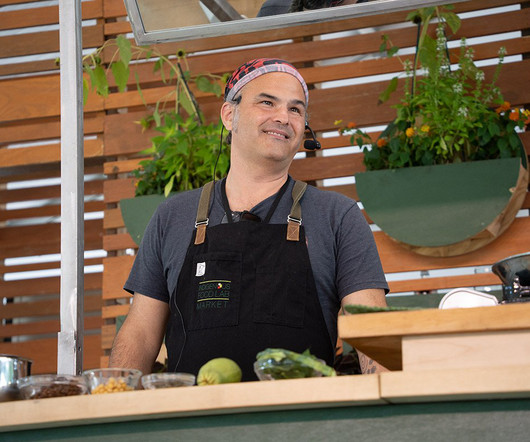
Civil Eats
FEBRUARY 19, 2025
He put his culinary skills to use that day and for many afterward, helping prep big batches of roasted squash and cabbage-apple slaw to be distributed alongside braised beef and pork. He was heartened to see that visitors to the makeshift pantrymany of whom had lost everything and were living in tents or carsmaintained a positive mood.
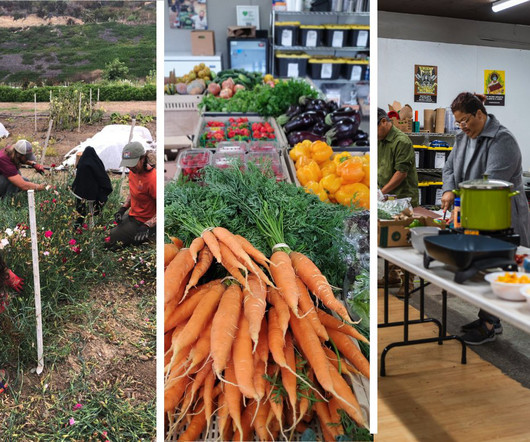
Civil Eats
DECEMBER 7, 2023
After receiving a grant from the California Department of Food and Agriculture (CDFA) Healthy Soils Program , Solidarity Farm hosted a carbon sink convergence event in 2019, at which a new idea—brought forth by the collective minds of participating local farmers—was born; a small farm distribution company called Foodshed Cooperative. “We
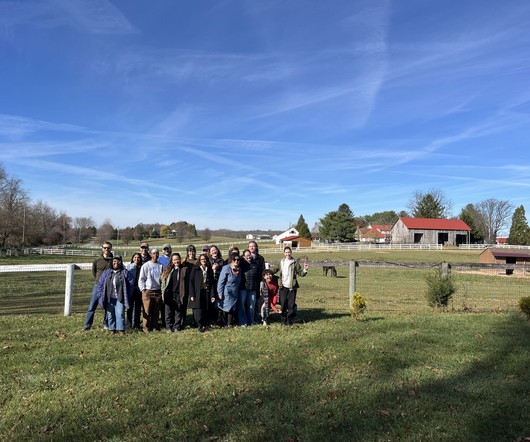
National Sustainable Agriculture Coalition
DECEMBER 19, 2024
Some of these spaces included the OEFFA Conference organized by NSAC member Ohio Ecological Food and Farm Association , the National Urban Agriculture Conference, and the Farm Aid Festival. We hosted a virtual briefing for lawmakers and the press to share key takeaways from the report.
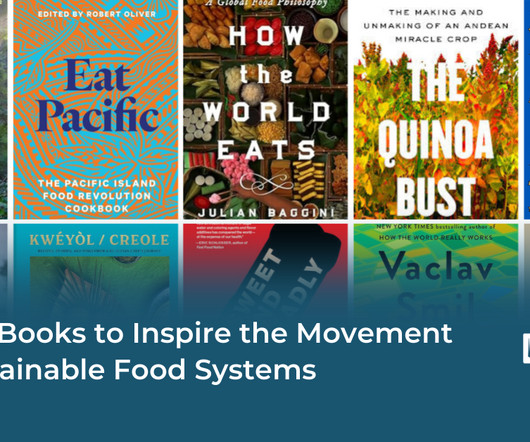
Food Tank
MARCH 19, 2025
Ben Brisbois reveals the less-palatable side of the banana industry, from devastating health impacts of pesticides to imperialism and ecological destruction. He explores questions of growing populations, inequitable distribution, and environmental harm, suggesting ways to bring us closer to feeding the planet without destroying it.

UnderstandingAg
FEBRUARY 21, 2025
Farming and ranching involve the fields of biology, ecology, chemistry, botany, physics, geology, meteorology, politics, economics, psychology and mechanics, just to name a few. Image 3: The global distribution of soil acidity and alkalinity is largely related to annual rainfall and its excess over evapotranspiration.

Civil Eats
SEPTEMBER 18, 2023
At her 6-acre Sakari Farms outside Bend, Oregon, Schreiner employs traditional ecological knowledge to cultivate regional first foods —foods consumed before European colonialization—and passes that expertise down to Native American youth. Spring Alaska Schreiner, owner of Sakari Farms outside Bend, Oregon.

Food Tank
OCTOBER 11, 2023
Boochcraft partners with The Ecology Center for the advancement of regenerative agriculture. In order to preserve the cooperative and the future of the families it supports, Garibaldi strives to be “socially fair, ecologically correct, economically viable and culturally diverse,” according to their website. Martinique Rhum J.M

Modern Farmer
DECEMBER 21, 2023
Farmer-researcher Eric Barnhorst, for example, conducted research on regenerating fallow fields with the Ecological Farmers Association of Ontario in 2022. There should be room for the promotion of agro-ecological and organic farming practices.

Food Tank
APRIL 2, 2024
Acres of Ancestry Initiative/Black Agrarian Fund The Acres of Ancestry Initiative/Black Agrarian Fund is a multidisciplinary, cooperative nonprofit ecosystem that aims to regenerate custodial land ownership, ecological stewardship, and food and fiber economies in the American South.
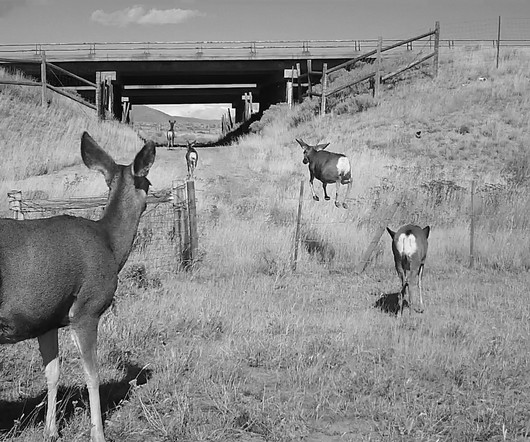
Modern Farmer
SEPTEMBER 15, 2023
Your book talks a lot about “road ecology.” Ben Goldfarb: Road ecology is the field of scientific study that looks at how roads and other transportation infrastructure affect nature and what we do about those impacts. A lot of road ecology is about why roadkill happens and what its effects on populations are and how to prevent it.

NASDA
AUGUST 7, 2023
In 43 states, the state departments of agriculture are co-regulators with EPA and are responsible for administering, implementing, and enforcing the production, labeling, distribution, sale, use, and disposal of pesticides under the Federal Insecticide, Fungicide, and Rodenticide Act (FIFRA). For instance, in Section 4.2.1
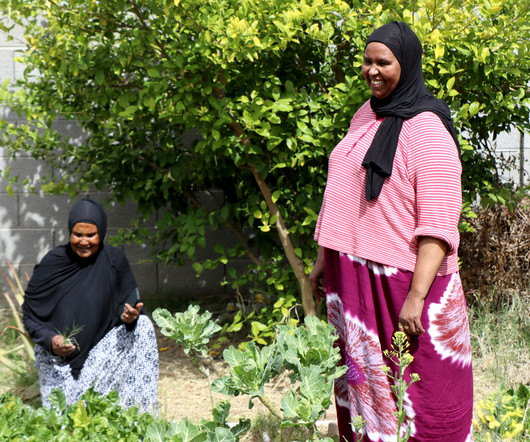
Modern Farmer
DECEMBER 26, 2023
He realized the ecological importance of milkweed, sometimes viewed as a pest plant, and turned to gathering seed pods and encouraging gardeners to plant the flower. After seeing the lively discussion sparked by our profile of Steve Bushey, we know better. Let’s go back to our ancestors and create our own food.”

Cropaia
FEBRUARY 25, 2024
Constructed wetlands for wastewater treatment represent a seamless integration of engineering innovation with ecological principles. This choice significantly impacts the system’s effectiveness, operational requirements, and ecological impact.
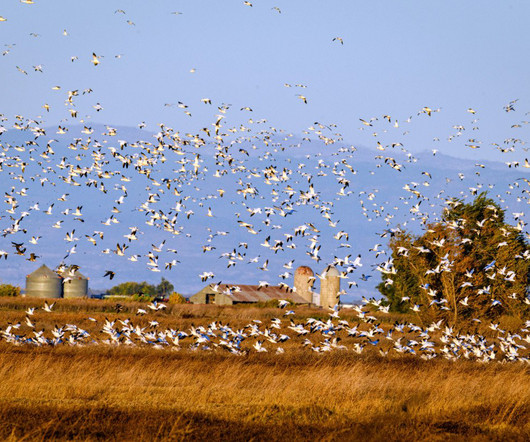
Civil Eats
MAY 15, 2024
Geological Survey’s Western Ecological Research Center. In 2021, Buler and a team of researchers mapped waterfowl distribution relative to commercial poultry farms in the Central Valley. This low-lying stretch of land produces a quarter of the U.S. Recently, USDA scientists linked the original spread to cattle to a wild bird.

National Sustainable Agriculture Coalition
MARCH 21, 2024
The program would empower States and Tribal Nations to strengthen regional food supply chains by providing funding to purchase and distribute locally grown and produced foods to vulnerable communities and provide tailored technical assistance to help growers scale production.

Caff
NOVEMBER 14, 2023
Currently, our programming is focused in four areas: Farm to Market, Policy & Advocacy, Farmer Services, and Ecological Farming. We commit to advancing racial, gender, and environmental justice in our larger systems, as well as in our own workplace.
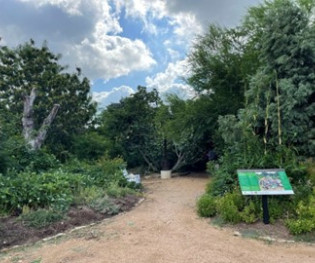
ATTRA
OCTOBER 3, 2023
American Forests has a tool called the Tree Equity Score, which tells you how evenly distributed trees are in your city and your specific neighborhood. USDA Plant Hardiness maps can help you determine what plants grow best in your climate. There are lots of ways to find land for a community forest garden.
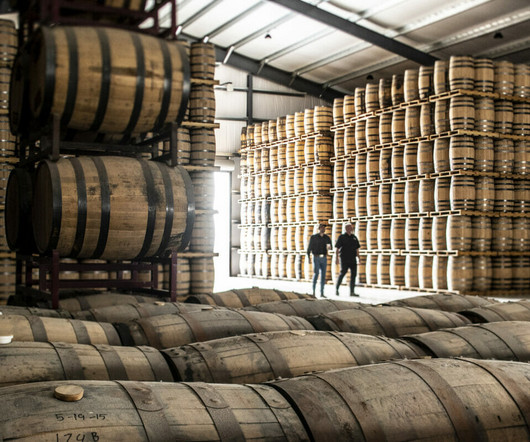
Modern Farmer
OCTOBER 16, 2023
Throughout the US, we now have an uneven age distribution of oaks, with a lot of oaks nearing maturity, but few very old or very young trees. They experimented with making bourbon for years before they could actually sell it or distribute it. But it’s also incredibly important ecologically.

The Lunatic Farmer
JANUARY 10, 2024
One of the most common questions people ask me is “I live in an apartment; is there anything I can do to change the food system, to change the ecology, practically, to change nutrition and livestock abuse?” Two thousand families raised their hand so the town bought 6,000 hens and distributed them to the families.
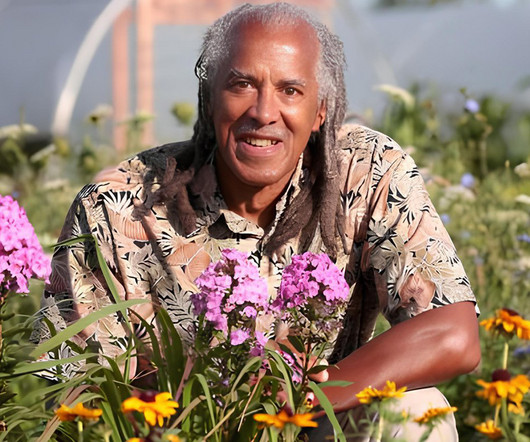
Civil Eats
FEBRUARY 22, 2024
Agroecology is an integrated approach that combines ecological and social principles for sustainable agriculture and food systems. Agroecology has evolved to include ecological, sociocultural, technological, economic, and political aspects of food systems.
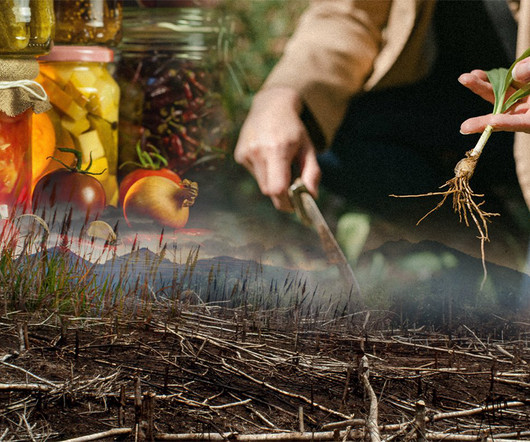
Civil Eats
SEPTEMBER 23, 2024
This may seem like an antiquated concern for chefs in an era of global food distribution systems, but it’s an all-consuming preoccupation for Oyster Oyster, a restaurant named after two ingredients—a bivalve and a mushroom —known for their ecosystem benefits. We’re in it for the relationships,” said Dana Honn.

The Lunatic Farmer
NOVEMBER 28, 2022
What I do is visit farms and look for cutting edge practical ecological solutions. This satisfied all my criteria for acceptable water-based sewage systems: leveraging the fertility, keeping it out of the ground water, and a portable distribution system. Couple that with anti-ecology and you have a recipe for dysfunction.
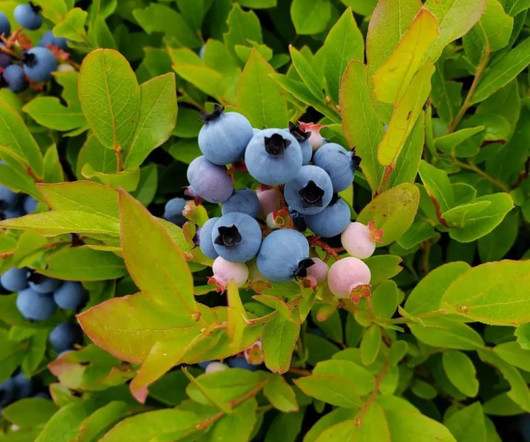
Daily Yonder
MAY 14, 2024
The so-called dual-use array, built by Boston-based BlueWave Solar, is operated by Navisun, a Massachusetts solar power producer that distributes the electricity to Central Maine Power’s energy grid. Sweetland manages the blueberry fields on behalf of the landowner, who leases the land to Navisun and receives a share of the blueberry profits.
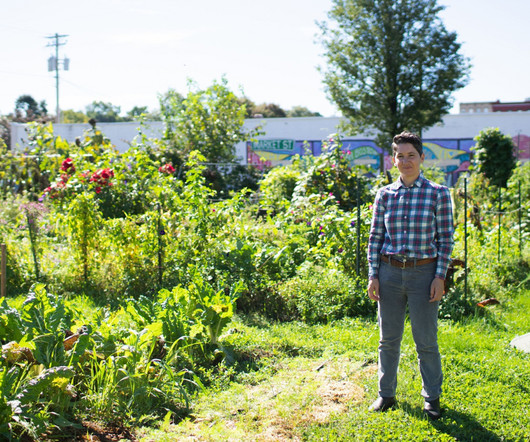
Sustainable Food Trust
NOVEMBER 22, 2023
Price is often the most obvious one due to the increased time and labour that can be needed within more ecologically sound farming systems (as well as the need to pay workers fairly). There are also questions about what kinds of foods are typically on offer in sustainable food projects.

Food Tank
SEPTEMBER 25, 2023
La Cosecha showcases her growth into becoming a key part of her community’s food distribution network. Wild Hope An eight-part series, Wild Hope highlights the eco-changemakers who are coming together to restore the planet and protect local ecology. Watch it on Disney+.

Modern Farmer
MARCH 20, 2024
In general, we need multifunctional perspectives for a more holistic systems comparison.” To be sure, we need conventional farming systems right now that create efficiency and economies of scale to grow and distribute large volumes of food to feed a growing population. from U.C.
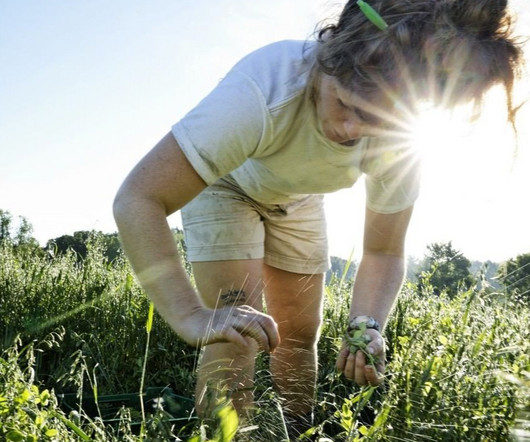
Agritecture Blog
MARCH 30, 2023
Often in the form of guaranteed minimum prices, these interventions create artificial demand for commodities like corn, and incentivize farmers to plant “fencerow to fencerow”, even when it might not otherwise be economically or ecologically sensible to do so. Cities are taking up the mantle too.

Caff
JANUARY 30, 2023
In the Fall of 2022 we embarked on our annual intensive farmer listening process, organizing over a dozen multilingual farmer gatherings, distributing our online survey to hundreds of growers, and holding numerous one-on-one conversations. Additional Priorities: Of course, the major priorities above are not the only issues impacting farmers.
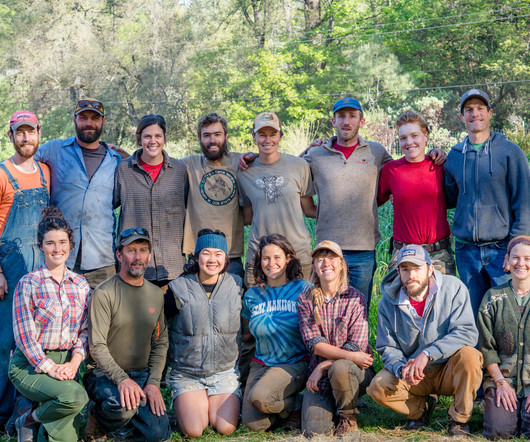
Caff
JANUARY 26, 2022
Together, they’re safeguarding affordable access to the farmland by providing a long-term lease to Mountain Bounty so that it continues to produce local, organic food in an ecologically responsible way for generations to come. But with heart a’plenty, that’s exactly what the the Mendo-Lake Food Hub is doing.
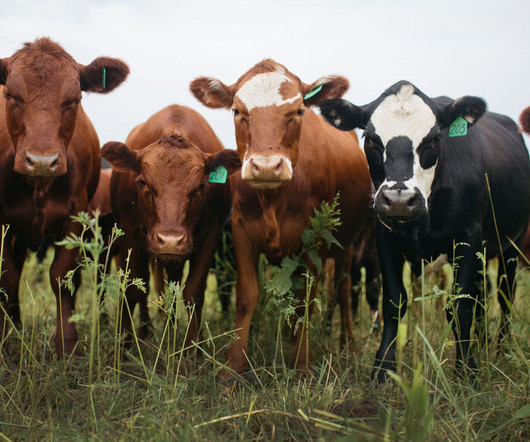
Food Environment and Reporting Network
MARCH 27, 2024
To understand the fescue-native debate requires an understanding of the ecological tradeoff between warm- and cool-season grasses. “A functioning grassland with different plants serving different functions. Nature’s design is not for monocultures.”
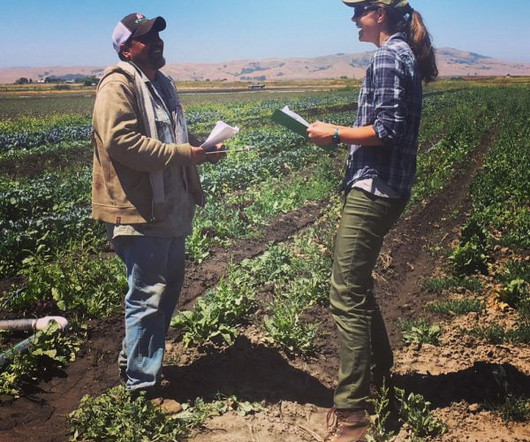
Caff
MARCH 24, 2022
Currently our programming is focused in four areas: Farm to Market, Policy & Advocacy, Farmer Services, and Ecological Farming. We commit to advancing racial, gender, and environmental justice in our larger systems, as well as in our own workplace. To learn more about CAFF, our history, and our core values, visit [link].
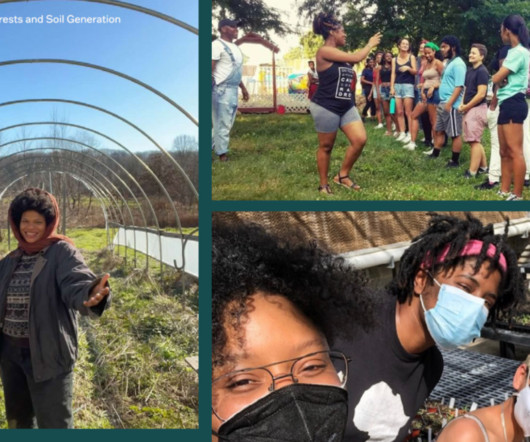
Share Food Program
FEBRUARY 21, 2023
Philly Forests uses revenue from their crop sales to operate their Urban Ecology Program which distributes free trees, shrubs and perennial plants through the Philadelphia zip codes with the lowest amount of tree canopy. In 2022, Philly Forests began a school garden and mini food forest at EW Rhodes K-8 School in North Philadelphia.

Food Tank
JUNE 29, 2023
The 7Gen Food Sovereignty Vision that informs this work centers language fluency, revitalization, holistic animal land management, traditional ecological knowledge, and community and economic development. The Food Distribution Program on Indian Reservations, (FDIPR)] is one of those programs,” Thompson tells Food Tank.

OECD: Environment
JUNE 16, 2023
Droughts are clearly affecting people’s lives in different regions, with uneven consequences and social inequalities in the distribution of climate impacts. Agricultural and ecological droughts that used to occur once every 10 years are projected to occur twice as often – even in (an increasingly unlikely) low warming scenario of 1.5°C

Caff
JUNE 7, 2023
Currently our programming is focused in four areas: Farm to Market, Policy & Advocacy, Farmer Services, and Ecological Farming. Farmer Services, Ecological Farming, etc.) We commit to advancing racial, gender, and environmental justice in our larger systems, as well as in our own workplace.

National Sustainable Agriculture Coalition
MAY 20, 2024
Apparently, savings from the proposed SNAP cuts have been used to increase funding for the Emergency Food Assistance Program and other commodity distribution programs. This approach is misguided given the ample evidence that scale-neutral, management-intensive practices likely yield even greater environmental benefits.
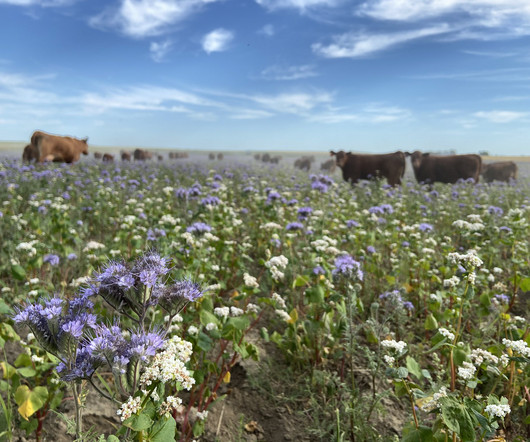
National Sustainable Agriculture Coalition
DECEMBER 8, 2023
Practices That Sequester Carbon and Increase Resilience Within EQIP and CSP in particular, the practices that receive funding through the IRA tend to accomplish multiple ecological goals. For example, reducing tillage and maintaining in-field residues can reduce the losses of carbon dioxide and may reduce nitrous oxide emissions.
Expert insights. Personalized for you.
We have resent the email to
Are you sure you want to cancel your subscriptions?


Let's personalize your content